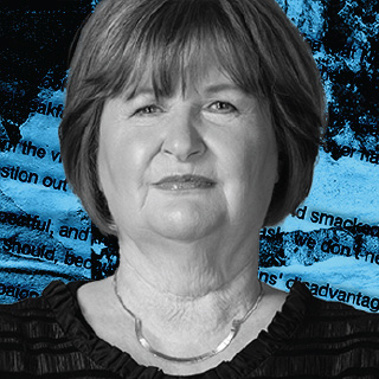
Cementing a three-way partnership between National, Act and New Zealand First has enormous political utility, irrespective of the final election count.
On NZME’s election show, I said that Christopher Luxon should negotiate with Winston Peters, irrespective of whether he needs New Zealand First’s MPs to form a Government.
Nothing has happened since to sway me from that stance.
Here’s why.
First, the three parties - National, Act and New Zealand First - do agree on some fundamental aims: Particularly the need to get Government spending under control and to right-size and change the direction of the public service.
There are other commonalities – but this is the most important.
It is core to control not just of Government finances but also the future direction of New Zealand.
Smart private sector executives have already been sounded out as to whether they will take part in a taskforce on this score.
Second, National could do with some political insurance.
If National does end up with sufficient numbers to form a two-party coalition with Act, when the final count is made public on November 3, there is still the obvious danger that an MP will go off the reservation during the next three years.
The calibre of National’s MPs should guard against that, but the numbers will still be tight.
The less obvious and most important reason is this.
Restructuring the public service with the loss of at least 10,000 jobs – fifty per cent more if Act has its way – will be messy, irrespective of the C-suite norms that Luxon will employ. That is outsourcing the task to public sector chiefs and requiring them to right size their operations. Doing this by cutting budgets by 6.5 per cent is a blunt tool.
Anyone who has held a senior corporate role is au fait with this but also the financial incentive awaiting them if they get it right.
Slashing head count in the private sector is rewarded through greater revenues (and profit) and goodwill from shareholders.
Such incentives are harder to achieve in politics.
Taking 1000s of public sector jobs out will have an impact on Wellington itself – think coffee bars, dry cleaners, lunch spots.
There will be a public backlash if this is not done skilfully and particularly if the economy is not humming by the time of the next election.
A warning from history: when Ruth Richardson implemented her “Mother of all Budgets” there was a sizeable political backlash. So sizeable that it almost cost National the 1993 election when Labour bounced back.
A three-year term does not give much time to rebuild following a savaging. Having an established alliance with New Zealand First gives National more ballast for the 2026 election. They could even throw the party a seat if needed to get over the line again.
Third, Bringing the C-suite to politics has clear attractions.
But the new prime minister will not enjoy a smooth ride with the press gallery.
Most journalists have no experience of C-suite norms. The world of the paid observer is different from those that have to make things work.
The prime minister-elect doesn’t want to negotiate governing arrangements through news-media. That’s the right call. He wants to do it his way and is impatient that press gallery journalists don’t get the point.
Luxon’s frustration was palpable at a short media conference when he once again stressed he was not conducting coalition negotiations in public.
A messy exchange resulted when he talked about reporters “interviewing their typewriters” (most young press gallery journalists would never have used a typewriter in their lives) and making “reckons”.
The upshot was journalists maintained their role was to ask questions on behalf of the public and questioned him as to whether he understood their role as the “fourth estate”.
Both sides should draw breath.
Luxon is the elected prime minister with a clear mandate to make change.
He will not take on a portfolio himself and will manage his Cabinet Ministers through setting KPIs and holding them to account for outcomes.
He is naturally optimistic and has the ability to drive formidable change.
Former Prime Minister Sir John Key recognised that having a good relationship with media was key to his success.
It will also ensure that Luxon's political honeymoon is not a short one.
Take your Radio, Podcasts and Music with you









